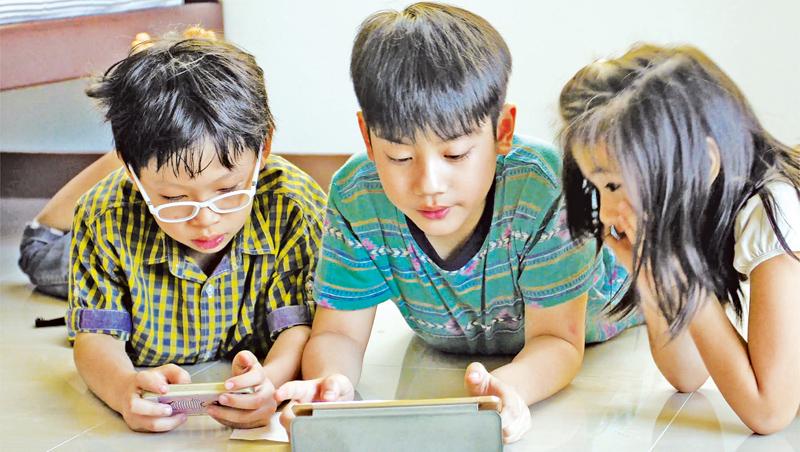
Some thirty odd years ago, a school teacher gave me a copy of a short essay written by an eighth-grader in her school. The topic given by her was, “Thoughts for Easter Season.” Although all students have done good religious presentations appropriate for the season, one essay stood apart. That was the one she gave me to read. I quote part of the essay:
“At first glance the Easter story seems somewhat absurd, that a loving Father would send His Son to die for a human race that did not return the love that it was shown.
Though beyond understanding, we know it’s true, and its reality has the power to change our lives. So, as we come into this season, let’s take the time to stop and reflect on both, the rugged cross and the empty tomb, for they both carry a powerful message: From the cross, it means my past can be forgiven. The empty tomb means He is risen. And, that means my future is assured.”
Digital generation
Today, things have changed but not for the better. For all its benefits, there’s no denying that technology has fundamentally changed young minds within a single generation. From checking the latest football news and ordering take-away dinner online, to texting friends, devices have impacted virtually every aspect of being a child. Some of these changes undoubtedly improve kids’ lives.
But, is technology actually pulling a bait-and-switch and stealing childhood from our children away from religious and family affiliations?
Children today, are part of a digital generation that has grown up in a world surrounded by technology and the internet. Most of them know how to use mobile phones, tablets, e-readers and computers.Take a look around you and, in cars, shopping centres and restaurants, chances are you’ll find young children engrossed, not in the world around them, but in their new digital reality.
As parents readily testify, many children don’t just use the devices, they are consumed by them.These devices have an almost obsessive pull towards them.
Childhood memories
The all-pervasive grasp of modern technology is changing not only the lives our children lead, but the very nature of childhood.
Scientists have revealed that while staring at a screen may seem tempting, our happiest childhood memories revolve around more simple pleasures, such as, kite flying, playing softball cricket and other low-tech outdoor activities. By contrast, TVs, computers and other electronic gadgets barely feature in our treasure trove of childhood memories.
Research findings suggest that modern-day children are in danger of missing out on some of the finest life experiences.The warning comes amid fears that technology is creating a generation of lonely children who struggle to make friends.
Lack of exercise is also a key factor behind soaring levels of obesity, with the average youngster spending almost nine and a half hours a week slumped in front of a TV or playing video games - and less than half an hour a day on exercise. Experts say, unless the parents act now, an entire generation faces an old age blighted by heart disease, cancer, diabetes and other diseases brought on by obesity.
Research
The latest research used hypnosis to take a group of young mothers back to their childhood. Once in a trance, the women, who were wired up to heart monitors and gadgets capable of measuring changes in sweat levels, were asked to describe their happiest moments from when they were aged six or seven. All ten of the women who took part in the survey described times when they had played outdoors with friends and families.
Dr.David Lewis, an accredited neuro psychologist, who conducted this experiment said, “The mums rediscovered the uninhibited child within, with some crying from happiness as they recalled simple family activities, from building sand castles at the seaside to flying a kite in the park, as their most cherished childhood memories.”
“Clearly, when it comes to producing enjoyable and enduring childhood memories, there’s no such thing as the great indoors.”
A survey of 500 mothers, conducted as part of the same research, found that nine in ten thought today’s children are missing out on a carefree youth. Dr Lewis added: “I do think parents think their children are too sophisticated to enjoying picking buttercups or flying kites, even if they are just five or six. But all the evidence is that they would love to do that.”
Balance
So how do we strike a balance between these wonderful benefits and the downsides of too much tech?
While there remains much guessing, and even some unwarranted scaremongering by certain parties on the topic, it is true that a healthy skepticism towards various aspects of our new digital media world is helpful in safeguarding children.
For starters, it’s crucial that parents teach their children the distinction between the real world and the leaps of faith that technology allows.
Children still need practice in the age-old arts of face-to-face communication and spontaneous problem-solving. For their part, parents need to clarify acceptable online conduct, and also manage kids’ technology use by modelling good behaviour.
Some professionals suggest keeping TVs, video games, and computers out of kids’ bedrooms and in a central area of the house.
They also recommend a “toughplus love” approach that extends as much to parents as their offspring.
You need to set a nightly cut off time for technology use and curtail your own usage. Parents must put away mobile phone and iPad themselves and interact with their children.
In the grand scheme of things, it must be understood that there are certain benefits that derive exclusively from children utilising their natural curiosity to explore.
But at the same time, there is also the need for children to acclimatize themselves with digital technology and future generation software to be ready for the future.
Both definitely have their places in today’s world. But as Oscar Wilde once said: “Everything in moderation, including moderation.” Parents should never forget his advice!
